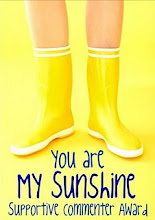It seems this topic is a hot one this week.
One of my favourite blogs, the crack and the light, addressed it a little ago.
Autism and Empathy, only a few days later.
And then Parenthood had a massive reaction to their episode: Tough Love (not available in Oz yet).
More discussion on this episode, and a great article, here.
One of the diagnostic requirements to be assessed on the autism spectrum is (as per Autism Spectrum Australia) :
Impairment in social interaction
May include:
- Limited use and understanding of non-verbal communication such as eye gaze, facial expression and gesture
- Difficulties forming and sustaining friendships
- Lack of seeking to share enjoyment, interest and activities with other people
- Difficulties with social and emotional responsiveness
Friendship does not come easily in an autistic world. Social skill impairment and obsessive interests make it hard for the child to connect and make friends. Add in language difficulties and self-focus and *boom*, you have a nearly impossible friendship cultivating experience.
And it is, as parents, our deepest desire, OUR obsession, our dream for these kids, for whom life is already far more challenging than your average joe, to have a friend.
We do not, like some, want the most popular. We do not yearn for the cool group acceptance. We just yearn for them not to go through life alone, lonely, isolated from peers.
It is why that episode of Parenthood has hit home for so many people.
A friend.
A lot of my regular followers may be sitting here going: "WTF? HER son has a friend! Her son has more than one!"
And they are right. We were lucky in a way, we were well on the trail of diagnosis when Boy 1 was very young. We also were blessed to be able to think outside the square of those days. We were given little guidance, and no information. One of the few things recommended to us by our paed was to foster one-on-one friendships. So we did.
To get to the bone, the advice I would offer to others today is this.
- Encourage friendships outside of group settings. Arrange playdates (for the young) or social excursions (for the older) ONE_ON_ONE.
- Be open to parents of other children. You may be surprised at how supportive they may be of a friendship. Fear comes from ignorance, we chose to be loud and proud, open and informative, all questions welcome and answered.
- When a connection/friendship is made, enforce "friend" free days at school. The very intenseness of these friendships (and let's face it, our wonderful spectrum kids are VERY intense) can be what burns it out. The pressure on the other child, hell, on both of them, can be massive! We instigated this at least once every few weeks. This was more in the younger years, as they get older they manage it themselves if given the skills to see and acknowledge the need for personal space. Make sure you also explain to teachers and parents why you instigate these. We always found they not only understood, they appreciated these actions. And to watch the two run to each other the day after, pure joy. (I always found it refreshed and strengthened the bond in our case).
- Teach social skills. This is a big one. We actively, in every situation, explained to our son what the expected/accepted social norms were. Still do today at 14. Most of them he has retained (but they need to be reinforced - apparently, a lot of children with ASD regress in behaviour during teenage years. This is not only due to hormones, puberty and typical teenage angst... it is also because we, as parents, go "Phew, he's got those ones, now we can breathe!" Uh-uh. It is proven that kids on the spectrum do not keep learned behaviours until their EARLY 20's! Yikes! But yeah - keep on drilling 'em in), some of them he is still working on getting. Small talk is a big one he struggles with ("What? You don't want to know all the details of string theory?").
- Do not be disheartened if at first you don't succeed. It is hard to find another they click with. This goes for ALL kids, on the spectrum or off. It is just a little more limited a pool for those on the spectrum.
- Realise that kids are accepting. If you work on them understanding when young, the odds are they will still understand when older. Boy 1 has many peers who, whilst not friends, are not enemies either.
- Breathe. And do not cast your social expectations and beliefs onto your child. Hard, I know. But important. It is their journey, not ours, and all we can do is cheer from the sidelines no matter what or with whom they are playing.
But the nice thing is that his mate feels somewhat the same. The last two weekends these friends have been together. This friendship, like his other mate C, is strong enough to survive the different schools. But it is hard for both of them right now, finding their feet. And I think they appreciate each other that much more.
 |
| S, Boy 1, C, Boy 2 - January 2012 |
We know we cannot force him to make new friends. At this teenage stage, we can only guide carefully, and support him. It is harder to meet new people and make new friends when older. And we have to allow him to take his own path. In his own words (as we gently push him to unfold those beautiful dragonfly wings once more), "I am taking things from a more observational perspective for a while." Fair call. For now.

































3 comments:
This is beatifully written and so very useful. It is amazing how small, patient-filled, persistent steps over time can make such an impact, even if only family members can appreciate how huge of an impact it really is. Thank you for writing this.
This should be published MM. I am sure this "article" would assist many.
Oh my goodness, I had missed this post. Yes, possibly a case of head up own backside! :)
This is a wonderful post and so very relevant to where we are now with play dates becoming part of our work with the Batsman. You know how much I am looking to you to mentor me in the years ahead. Love how straight you talk and don't ever change xxx
Post a Comment